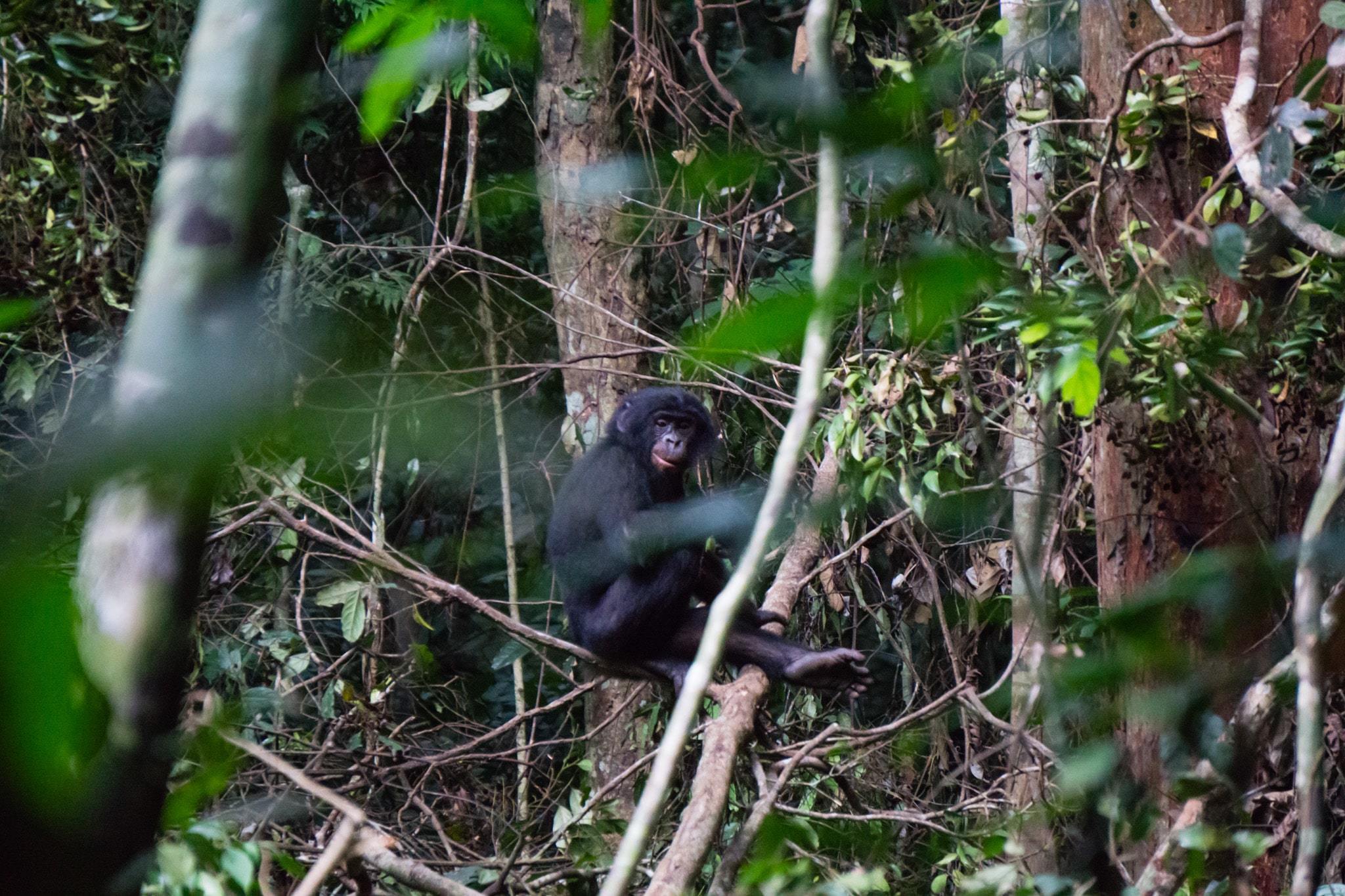- Threatened species conservation
- Bénéficiaire MMT - Mbou Mon Tour
- Montant du projet € 216 018
- Subventions FFEM € 70 000
-
État du projet achevé
The territory of Bolobo, province of Bandundu, located 300 km north of Kinshasa, (23 hours by canoe or 1 hour by plane in a tourist plane), is home to a rich and varied fauna but above all has one of the highest densities of bonobos (Pan paniscus), endemic to the Democratic Republic of Congo and threatened (EN) according to the IUCN Red List. Contrary to the habits of the species which normally prefers swamp forests, this population has a very particular ecology because it lives as much in forest ecosystems as in the savannah.
Yet these ecosystems are rapidly disappearing due to the influx of non-native populations from the region who come to work for forestry and agricultural companies (intensive breeding). These people also consume bushmeat and, unlike the Batékés, (populations from the area), hunt bonobos, both for their own consumption and for the sale of their meat.
Faced with these threats, the communities of 9 villages have decided to protect their forests through the creation of a community reserve of 84,735 ha in which research activities are developed, (in particular by primatologists from the National Museum of Natural History), and ecotourism, in a region that has never experienced armed conflict. For this, they are supported by Mbou Mon Tour (MMT), a Congolese association created in 1997 operating in the Bolobo area and its surroundings and which collaborates for some of its activities with the WWF.
MMT seeks to develop a new model of community conservation to protect the bonobos of Bolobo while supporting local development and sustainable and inclusive land use planning. MMT is also a founding and active member of the new Alliance for the Conservation of Great Apes in Central Africa, (AGSAC), network.

